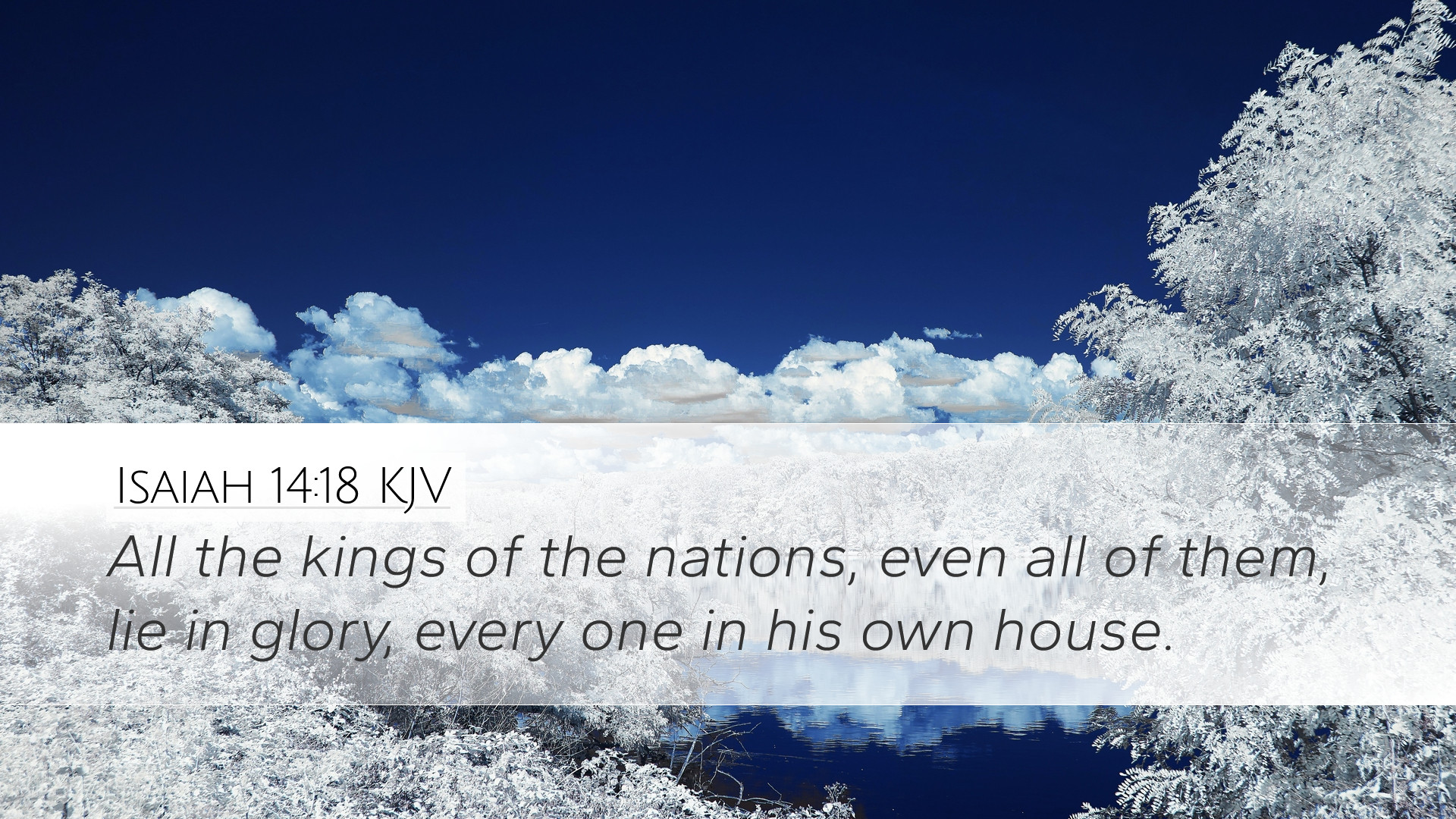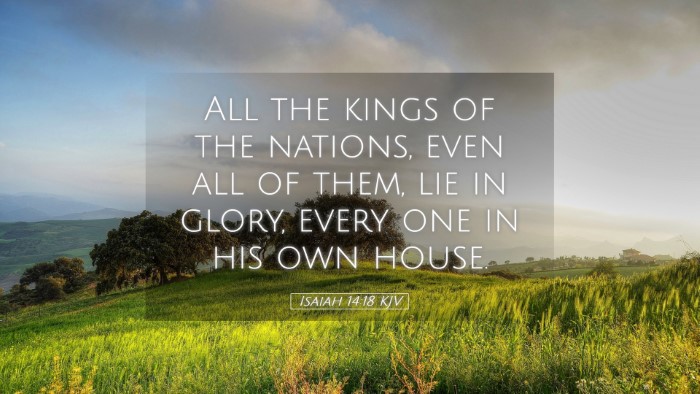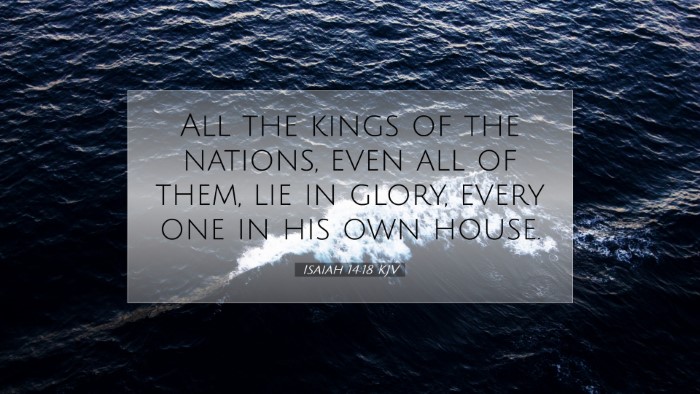Commentary on Isaiah 14:18
Isaiah 14:18 reads: “All the kings of the nations lie in glory, each in his own tomb.” This verse captures the universal truth of mortality and the ultimate fate of those who hold power in this world. The following commentary draws on insights from various public domain commentaries, providing a meaningful exploration for pastors, students, theologians, and scholars.
Contextual Analysis
Isaiah 14 is part of a larger section in the Book of Isaiah that addresses the fate of nations and the restoration of Israel. In this specific chapter, the prophet Isaiah foretells the downfall of Babylon, a powerful empire that oppressed Israel and other nations. The referenced verse serves as a poignant reminder that, despite their earthly power and glory, earthly kings ultimately face death and judgment.
The Finality of Death
Matthew Henry emphasizes the idea that all human greatness fades in the presence of death. “The grave is the end of all men, the common home for both the mighty and the lowly,” he states. This observation calls into question the temporal pursuits of power and influence, reminding us that in death, all distinctions vanish.
Albert Barnes notes that even the most renowned sovereigns, who may have lived in grandeur, eventually find their resting places among the deceased. “Their grandsire’s dust, as well as the king’s,” he writes, underscores the egalitarian nature of death. This reflection compels readers to consider their own legacies and what truly endures beyond the grave.
The Kings in Glory
In the phrase “lie in glory,” several commentators, including Adam Clarke, interpret this as a reference to the respect and honor bestowed upon the deceased rulers. “Despite their demise, the memory of their deeds may linger; their glories are recognized in death,” Clarke explains. This sentiment reinforces the idea that even in death, the lives of these kings attract attention and reflection.
Contrast Between Earthly Power and Divine Sovereignty
The verse also serves as a contrast between the temporal rule of kings and the eternal kingship of God. Matthew Henry notes: “While the kings rest in their dusty tombs, the Lord reigns eternally.” This dichotomy invites readers to ponder the transient nature of human authority versus the everlasting reign of the Almighty. It encourages a perspective grounded in divine authority, rather than the fleeting nature of earthly governments.
The Theological Implications
- Divine Judgment: The ultimate authority of God implies that human rulers will be held accountable for their actions during their reign. No matter their status, they cannot escape divine scrutiny.
- Hope for the Oppressed: For the Israelites, this prophecy serves as a source of hope. Isaiah reassures the people that their oppressors will not ultimately succeed; justice will prevail.
- Encouragement for Believers: Believers are encouraged to focus on eternal treasures and the richness of God’s kingdom, rather than seeking earthly accolades.
Literary Devices in Isaiah 14:18
The verse employs vivid imagery and a striking juxtaposition. It creates a compelling picture of kings “lying in glory,” which reflects both grandeur and the somber reality of death. Adam Clarke notes that such literary choices enhance the dramatic effect of the prophetic message, making it resonate with its audience.
Application for Today
The timeless truths contained in Isaiah 14:18 offer profound lessons for contemporary readers:
- Reflect on Mortality: In a culture that often idolizes political figures and seeks power, this verse serves as a sobering reminder of our mortality.
- Assess Priorities: It challenges us to evaluate what we truly honor and pursue in life. Are we chasing temporary fame or investing in eternal significance?
- Encouragement to the Weary: For those feeling oppressed by worldly systems, it reassures them that justice and restoration will ultimately come from God.
Concluding Thoughts
Isaiah 14:18 encapsulates the fleeting nature of earthly power and the certainty of death, serving as a profound reminder for all. The commentary provided here aims to enhance understanding and application of this scripture, guiding readers to reflect deeply on their own lives in light of God's eternal kingdom.


